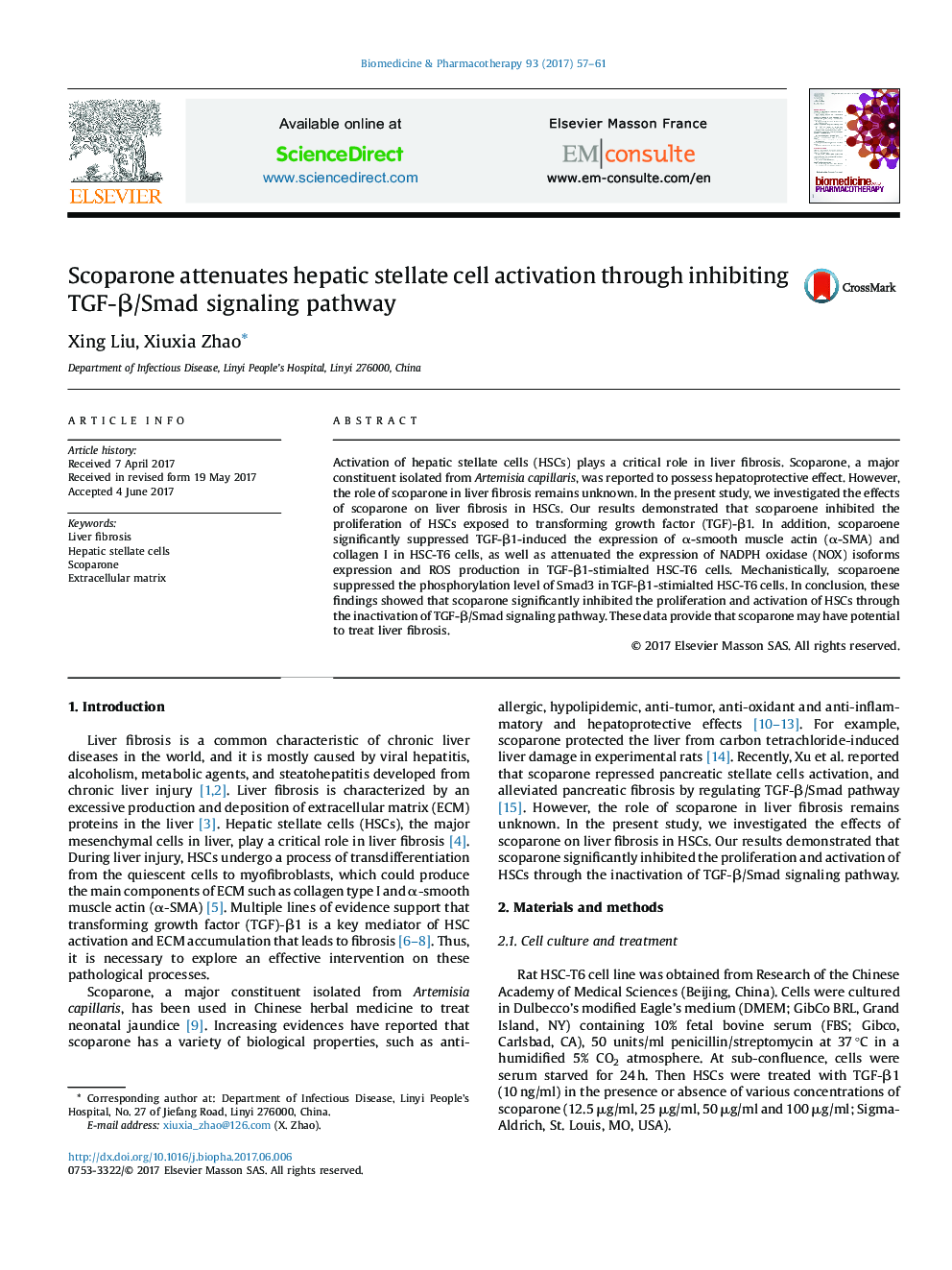| Article ID | Journal | Published Year | Pages | File Type |
|---|---|---|---|---|
| 5552618 | Biomedicine & Pharmacotherapy | 2017 | 5 Pages |
Activation of hepatic stellate cells (HSCs) plays a critical role in liver fibrosis. Scoparone, a major constituent isolated from Artemisia capillaris, was reported to possess hepatoprotective effect. However, the role of scoparone in liver fibrosis remains unknown. In the present study, we investigated the effects of scoparone on liver fibrosis in HSCs. Our results demonstrated that scoparoene inhibited the proliferation of HSCs exposed to transforming growth factor (TGF)-β1. In addition, scoparoene significantly suppressed TGF-β1-induced the expression of α-smooth muscle actin (α-SMA) and collagen I in HSC-T6 cells, as well as attenuated the expression of NADPH oxidase (NOX) isoforms expression and ROS production in TGF-β1-stimialted HSC-T6 cells. Mechanistically, scoparoene suppressed the phosphorylation level of Smad3 in TGF-β1-stimialted HSC-T6 cells. In conclusion, these findings showed that scoparone significantly inhibited the proliferation and activation of HSCs through the inactivation of TGF-β/Smad signaling pathway. These data provide that scoparone may have potential to treat liver fibrosis.
